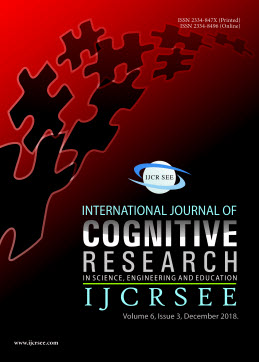MAKING SCIENTIFIC CONCEPTS EXPLICIT THROUGH EXPLANATIONS: SIMULATIONS OF A HIGH-LEVERAGE PRACTICE IN TEACHER EDUCATION
MAKING SCIENTIFIC CONCEPTS EXPLICIT THROUGH EXPLANATIONS: SIMULATIONS OF A HIGH-LEVERAGE PRACTICE IN TEACHER EDUCATION
Author(s): Valeria Magaly Cabello, Keith J. ToppingSubject(s): Educational Psychology
Published by: Удружење за развој науке, инжењерства и образовања
Keywords: Explanation; Simulations; High-leverage practice;Science Education;
Summary/Abstract: There is a current research interest into high-leverage teaching practices which are geared towards making concepts explicit to learners. Explanations are a common practice in science education for sharing and constructing meaning with students. However, current studies insufficiently articulate a framework for understanding pre-service teachers’ explanations; neither do they assess the practical criteria for development. This article documents various criteria for pre-service science teachers’ explanations as related to the cognitive science literature and their assessment in the context of an instrument designed for teacher education. A rubric was constructed which organized structural and supportive elements into three levels. A validation process is described, and its application in teacher education programs to detect possible patterns and changes in pre-service science teachers’ explanations. The results show the explanation strengths of pre-service teachers working with examples, graphs and images. However, difficulties were found in using and improving analogies, metaphors, and models, and also approaching mis-conceptions as a learning opportunity. Theoretical and practical issues are discussed from a cognitive perspective. We conclude that the signaling implications of using rubrics sensitive to progress-monitoring during teacher education for high-leverage teaching practices give opportunities to simulate and rehearse practices that are highly conducive to learning.
Journal: International Journal of Cognitive Research in Science, Engineering and Education (IJCRSEE)
- Issue Year: 6/2018
- Issue No: 3
- Page Range: 35-47
- Page Count: 13
- Language: English

